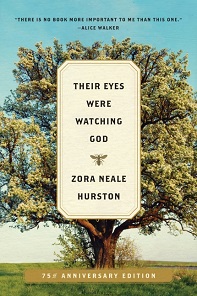Last weekend I went home for a visit. I’m from Roanoke, Virginia, a midsized city in the southwestern part of the state that’s surrounded by the Blue Ridge Mountains on all sides. Almost all of my extended family lives there, and whenever I go home everyone gets together in the living room of my grandma’s house. My cousins and I joke that everyone talks at once and nobody listens—everything is repeated about five times a sitting, at minimum—but in her house my grandma reigns queen, holding court in her leather recliner. When she talks, I listen.
One of my favorite stories she tells is about my dad when he was younger. As the only boy in a family with three girls, it was his job to mow the lawn, a chore that he despised. It seemed pointless, cutting down something that was just going to grow right back and then doing it all over again a few weeks later. Exasperated by the stupidity of it all, my dad finally informed my grandma, “When I have a house, I’m gunna pour concrete and paint it green.”
Don’t you love that logic? It struck me as a particularly poetic way for a preteen to express a hatred of yard work. I should probably also mention that this was said, and is always retold, with a thick Southern drawl. But with or without the accent, it’s the type of distinctly regional, colloquial language that I grew up around and that I’ve only now begun to appreciate as an adult. As someone who has moved away from home, whose accent has all but completely faded, and who doesn’t naturally employ these types of colloquialisms in normal conversation, I envy and admire the use of direct, everyday language to evoke such a strong image and sense of place.
A phrase like my dad’s definitely would have come in handy in tenth grade to vocalize the frustration I experienced while reading Zora Neale Hurston’s Their Eyes Were Watching God for AP English. For a high schooler just trying to get through the year with a decent test score, that book is a slow and painful process. For those of you who haven’t read it, or who might have forgotten, a sample passage of dialogue from the first chapter goes like this:
“Most of dese zigaboos is so het up over yo’ business till they liable to hurry thyself to Judgment to find out about you if they don’t soon know. You better make haste and tell ’em ’bout you and Tea Cake gittin’ married, and if he taken all yo’ money and went off wid some gal, and where at he is now and where at is yo’ clothes dat you got to come back her in overhalls.”
The book, of course, was famously contentious for its use of the vernacular. When it was first published, it was criticized by many black writers and critics, including Richard Wright and Alain Locke, as exploitative. Many thought the exaggerated speech and characteristics of some of her characters made them comically primitive, that she essentially created the literary equivalent of minstrel shows. The book went out of print for years and then resurfaced as an underground phenomenon when African American Studies departments began to form at universities in the 1960s. Today it’s a widely read classic, considered among the most important feminist texts in American literature and –lucky for tenth grade me—included in high school English curriculum nationwide.
But honestly all that I remember about the book from high school was how laborious it was to read. It took about three times the amount of time to get through as another book its size and, even as I started to get used to the dialogue, it never got much easier. It seemed pointless and exhausting. Is this purposefully difficult? I wanted to know. Why the unnecessary labor? Why not just pour some concrete and paint it green?
A couple of years ago I moved back to Virginia from Chicago and started to help a former colleague of mine do research for a book he was writing on Zora Neale Hurston and Langston Hughes. When I read Their Eyes Were Watching God a second time, I loved it. I loved Janie as a powerful, self-reliant, and articulate female protagonist. I loved Zora Neale Hurston’s particular mode of storytelling. And I loved the dialogue. This time around I happily took my time reveling in her use of language and dialect. Janie’s speech is a lot different than my dad’s—it’s certainly a lot wordier—but, like his, it’s also a type of common poetry, with a rhythm and cadence that arises from a particular context. The people of Eatonville are connected by this common way of speaking and through their dialogue, we as readers are invited in as well. Wherever we might be coming from.
When I go home nowadays, I’m constantly recording familiar words and phrases that I hear, scribbling them in my notebook or on my phone—collecting little bits of language from the place that I grew up in and miss all the time. These days, there’s little my dad loves more than mowing the lawn and tending to his garden. It’s funny the things you learn to appreciate when you’re older.








